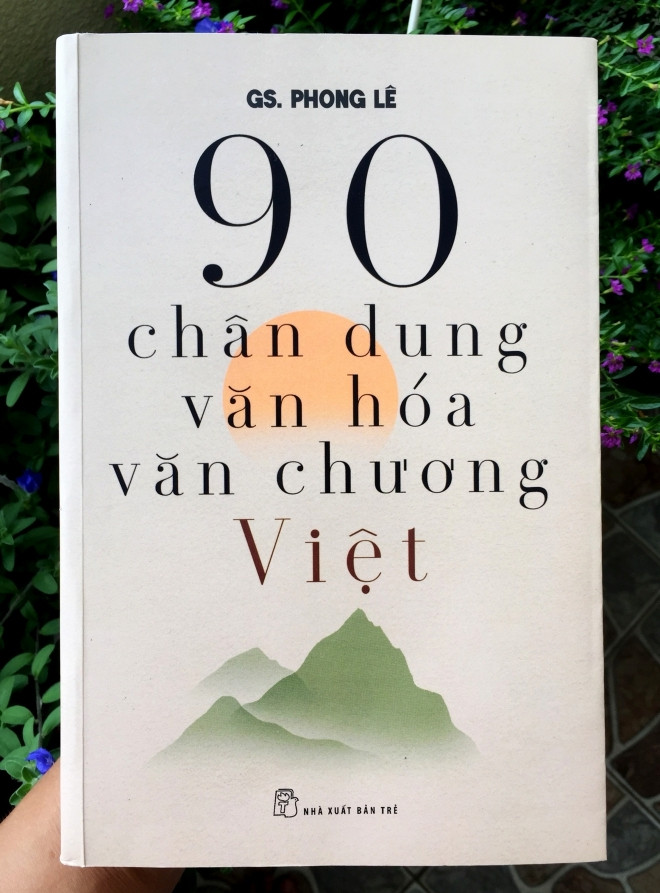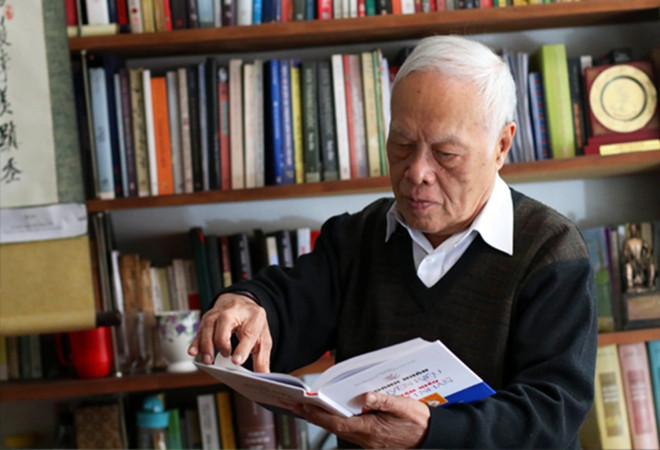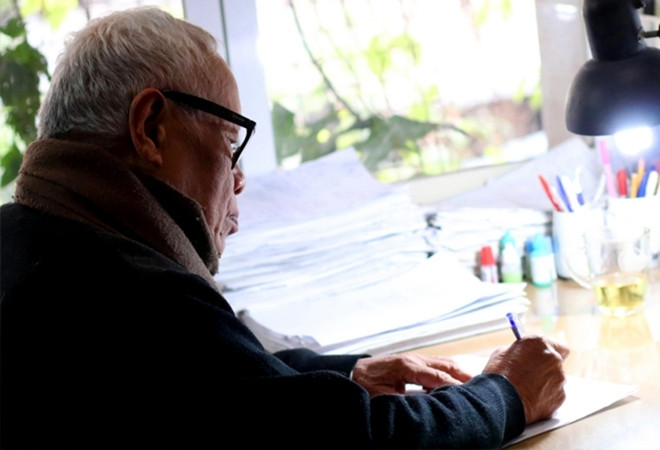It can be said that the book 90 portraits of Vietnamese literary culture (Tre Publishing House) by Professor Phong Le is his perspective and distillation of the characters that he highly appreciates, spanning from the 13th century to the 21st century.
The book mainly mentions typical characters in the North and North Central regions, with few characters in the South. In addition to immortal names such as Chu Van An, Le Thanh Tong, Nguyen Binh Khiem, Nguyen Du, Nguyen Cong Tru, Truong Vinh Ky, Phan Boi Chau, Tan Da, Nhat Linh, Vu Trong Phung, Xuan Dieu, Ho Dzenh, Quang Dung... which make up the majority of the book, Phong Le also writes about characters with sharp edges and unique features.
For readers outside of academia, names like Phan Thuc Truc, Cao Xuan Duc, Vu Dinh Long, Hoang Xuan Han, Ngoc Giao, Thanh Chau, Nguyen Xuan Sanh, Nguyen Van Xuan, Tran Dan, Cao Huy Dinh… are not easy to know, but in history, they are very important and have made many contributions.
The surviving characters include Ma Van Khang, Huu Thinh, Tran Nhuan Minh, Duong Huong, Bao Ninh...; the youngest is Nguyen Nhat Anh, born in 1955.

The book "90 portraits of Vietnamese literary culture" has just been released.
Strong perspective on "masculinity"
This is certainly not a choice, but belongs to the natural temperament of each author, when throughout his writing career, Phong Le wrote mainly about men, and often wrote much better. As in this recently released book, filtering 90 portraits written over 60 years, there is only one female portrait, the poet Xuan Quynh (1942-1988).
Even when writing about this female poet of love, Phong Le's approach is quite unique, a bit thorny, the article Xuan Quynh - To the end of pain, to love is like that. Reading about Xuan Quynh, we understand more about Luu Quang Vu's life and his family. For example: "Quynh was very secure in the cramped space of suffering and joy - not sadness - joy. And more importantly, she was secure in a career of poetry and later drama that both of them pursued; a career that Quynh strongly believed Vu would reach its far-reaching goals. It was that trust that made Quynh love Vu even more. Love Vu and love Vu's career, even when Vu's talent was still potential, just revealed".

Professor Phong Le has entered his 90s.
This male-dominated perspective is even more characteristic when he writes about Bao Ninh's writing: "If obsession - obsession with war, obsession with death, obsession with love, obsession with human fate, obsession with sadness - becomes a great pressure that makes it difficult for writers and readers to escape. Then purification is the method, or the mysterious consequence that helps the author and us find a new value, which has the effect of cleansing and bringing peace to our thoughts and to our souls. I want to talk about what only true literary values can create. It is that, the value of purification and cleansing, that makes The Sorrow of War find its true existence and life in people's hearts, anywhere and anytime."
Or when writing about Quang Dung, he focused on sadness, the main soul of this poet's poetry. He wrote: "There must be sadness to truly be the soul of Quang Dung's poetry. A little sadness, how can one escape, in the hardships of life, in the fear of the past, but sadness does not mean losing faith in life, for him, it is the whole of a simple but warm life between relatives and friends, it is the feelings of so many people who read him and love him, both in life and in poetry".
“Write until you can no longer hold the pen”
Writing about Nguyen Nhat Anh, he also goes to the hidden messages: “Amidst the evil and falsehood that surround today, reading Nguyen Nhat Anh, we still have faith: Goodness, goodness, and beauty still exist in life, and in relationships between people, arousing the desire to live kindly, to live for others. That is the positive value that Nguyen Nhat Anh's works bring first of all to children, and not only children but also grandparents and parents.”

Phong Le was born in 1938 in Ha Tinh, currently living in Hanoi, is the author and editor of about 30 theoretical and research works on Vietnamese literature. Some notable books include Some issues of Vietnamese prose 1945-1970 (1972), Modern Vietnamese literature - History and theory (1980-1987, 7 volumes), Literature and the renovation process (1994), Literature on the journey of the 20th century (1997)...
As a lecturer, during his half-century career, he has guided nearly 20 doctoral theses, over 50 master's theses, and countless bachelor's theses. In a conversation with the industry, he said: "I will continue to write, write regularly, write a lot, write more, write as destiny, as a reason for living, as a passion. Write until I can no longer hold the pen!"
According to Sports & Culture